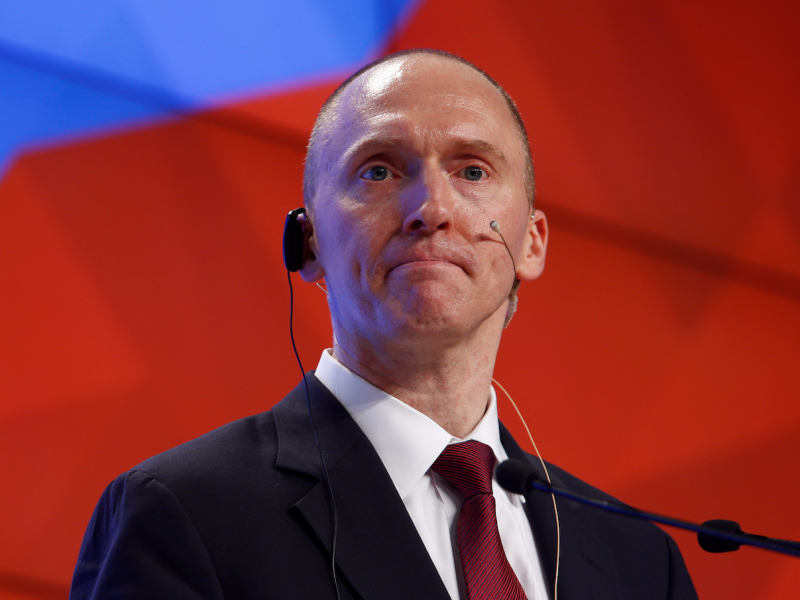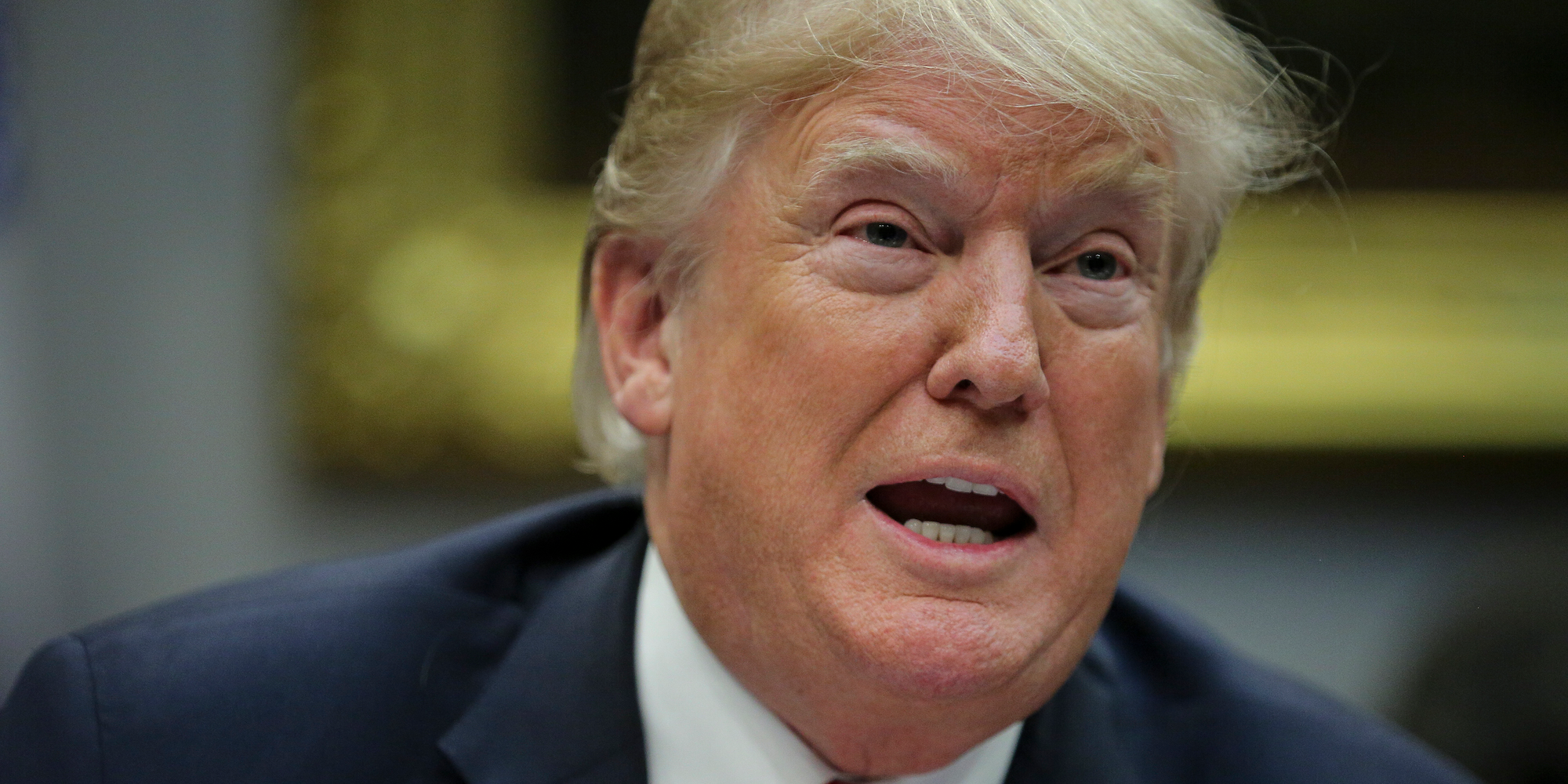- President Donald Trump demanded the release of many Russia investigation-related documents and text messages on Monday.
- Trump directed the DOJ and Office of the Director of National Intelligence to release the documents.
- The White House said in a statement that the move was in the name of “transparency.”
President Donald Trump on Monday directed the Office of the Director of National Intelligence and the Department of Justice to declassify a number of documents related to the Russia investigation.
He also asked for the release of unredacted versions of all text messages about the probe sent and received by multiple officials, including former FBI Director James Comey and deputy director Andrew McCabe, the White House said in a statement.
The documents that Trump demanded be declassified included several pages of a June 2017 FISA renewal application for a warrant ultimately granted to surveil former Trump campaign adviser Carter Page, along with all FBI interviews and reports connected to the Page FISA application.
Trump also requested that the agencies declassify all FBI reports of interview with Justice Department official Bruce Ohr that were connected to the Russia probe.
Ohr, who communicated with former British spy Christopher Steele in 2016 as he compiled his dossier of damaging allegations involving Trump and Russia, has come under fire from Trump and his allies in recent weeks for his involvement with the Russia investigation.
Trump also asked the Justice Department to publicly release unredacted versions of all text messages related to the Russia probe of Comey, McCabe, Ohr, and FBI officials Lisa Page and Peter Strzok, who were involved in both the Russia investigation and the probe into 2016 Democratic presidential nominee Hillary Clinton's use of a private email server while she served as secretary of state.
Trump calls for the selective declassification of the Page FISA warrant

In particular, Trump asked the DOJ and FBI to declassify pages 10 to 12 and 17 to 34 of the Page FISA application.
One of those sections appears to relate to the time period that Page worked on Trump's campaign as a foreign policy adviser.
Trump did not ask the DOJ and FBI to declassify subsequent portions of the document that detail Page's activities and Russian efforts to recruit him as an agent before he joined the campaign.
The president also did not order the declassification of a subsequent part of the document that details information Page provided to the FBI during an earlier interview, or sections that go over Russia's attempts to recruit New York City residents as intelligence assets.
Pages 17 to 34 of the application deal with Page's possible coordination with Russian government officials on activities designed to influence the 2016 election.
Crucially, several parts of this section appear to contain information about confidential sources that Steele used while compiling his dossier, as well as Steele's own history as an FBI source.
The FISA process is arguably one of the most sensitive and secretive methods that the US government uses when it comes to gathering foreign intelligence. The application process that goes into obtaining a FISA warrant targeting a US person involves multiple levels of authorization, as well as permission from a FISA court judge.
Elie Honig, a former federal prosecutor from the Southern District of New York, called Trump's decision to declassify parts of the Page FISA application an "incredibly dangerous move that sets a really troubling precedent."
"To say you're going to throw open the information in a FISA warrant for plainly political purposes is incredibly reckless," he added.
The White House said Trump's decision was made in the name of "transparency."
Republicans praise Trump while Democrats slam him for 'risking the lives' of confidential sources
Several of Trump's allies on Capitol Hill, including Republican Rep. Matt Gaetz of Florida, who requested that the documents be provided, applauded the president's move.
Gaetz said in a statement that the documents would reveal "some of the systemic corruption and bias that took place at the highest levels of the DOJ and FBI, including using the tools of our intelligence community for partisan political ends."
Meanwhile, Democratic Rep. Adam Schiff, the ranking member on the House Intelligence Committee, called Trump's move a "clear abuse of power" meant to intervene in the Russia investigation by "ordering the selective release of materials he believes are helpful to his defense team and thinks will advance a false narrative."
Schiff added that the DOJ and FBI had previously informed him that the release of some of those materials would cross a red line because it could compromise sources and methods.
House minority leader Nancy Pelosi also came down hard on Trump, calling his decision to selectively release sensitive information "desperate, dangerous, and deliberately misleading."
"The President is potentially risking the lives of our patriots by compromising sources and methods, all so he can advance falsehoods and false narratives that distract from the truth of the Trump-Russia scandal," she added.
Politico reported that both the Justice Department and FBI have no idea how the redaction process is being handled, with a source familiar with the process saying both entities feel it's possible that the White House could release the information on its own as early as Monday. Meanwhile, a source familiar with the process told CNN the declassification won't happen Monday.
The White House made the announcement amid a firestorm involving Trump's Supreme Court nomination, Judge Brett Kavanaugh, who is facing an allegation of sexual assault that took place when he was in high school. Kavanaugh has denied the allegation, which has thrown his confirmation into question as senators seek more information on the claim.
